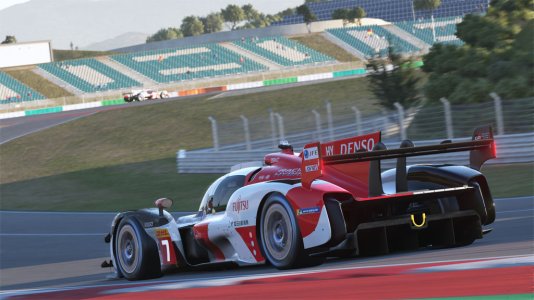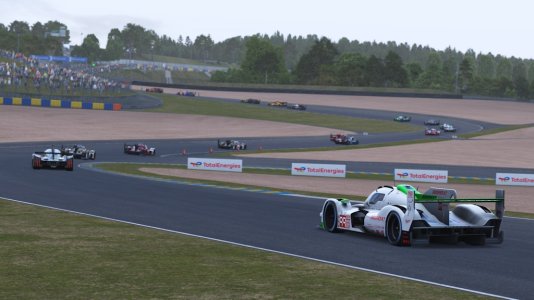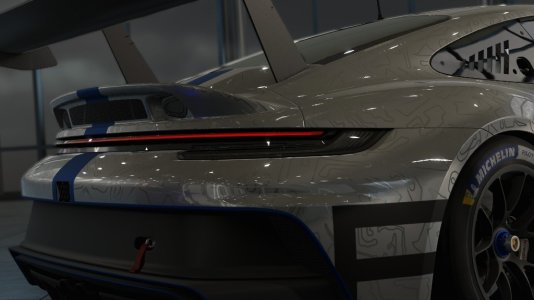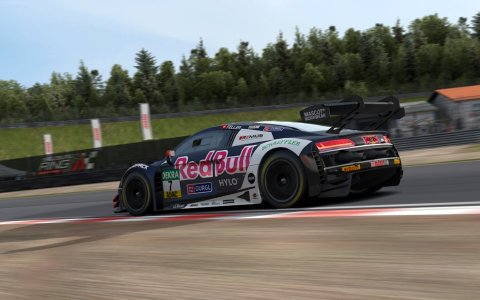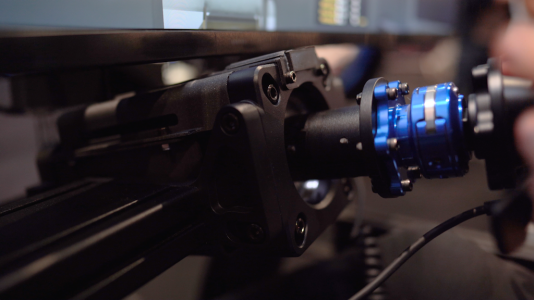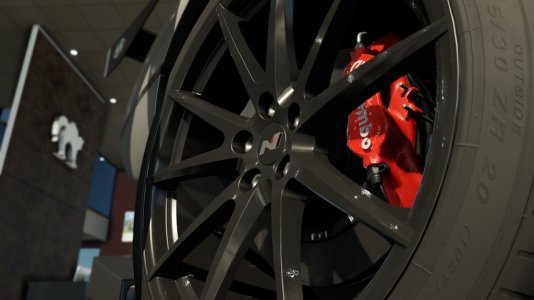To answer the OP's actual question about braking technique: from my limited experience of playing with AC braking settings, my instinct is that even with ABS on, you're still going to gain from feeding the brakes in with a little care rather than simply stamping on the pedal instantly (depending on the suspension time constant), having the brake balance as near correct as possible, and setting the brake force not too far above the point where you'll lock
without ABS. But I don't know how much flexibility there is in the AC ABS algorithm - e.g. does it treat supercars or GT3 cars the same as normal road cars? (Modders will doubtless know

)
Since I don't have a motion rig, seat belt tighteners, or even a load-cell brake pedal, I have no feel for the brakes and rely heavily on ABS or reducing braking force (if no ABS) to avoid lockups in the main stopping zones. (G27 pedals.)
However, to partially answer your question
@Michael Krone, ABS relies on detecting a wee bit of slip and the art is in having enough slip to brake well (slip is never zero if there's torque on the wheel, that's just how rubber works) but not enough to go sailing way past the optimum. So it's not a binary thing where you can just say you've
exactly reached the "correct" threshold; it's a judgement call which depends on the characteristics of the rubber and the desired behaviour of the braking system. Lots of cars even in vanilla AC have variable ABS settings in fact, and I *think* this is just adjusting the slip threshold but it may go further.
I'm pretty certain that an ABS-braked front wheel should never entirely stop rotating, until the car is going really slowly (when ABS typically deactivates). With a human controlling the brakes, actual lockups where the wheel truly
stops can and will happen.
Personally, I like to think that even just braking in a straight line, a racing ABS will kick the backside of any human because it can be tuned to do basically the same thing as a human but much faster and more accurately. How could it lose? (
NB: guesswork alert! 
)
For sure I'd guess a consumer ABS is likely to trigger at lower slip levels to play it safe and won't maximise deceleration, so maybe human racing drivers will trivially beat those systems.
Good point above by
@mclarenf1papa about trailbraking... and this is reason enough not to forego ABS when it's factory-fitted!
So braking (idk say) 5 seconds with ABS active and engaged will yield a longer distance traveled vs 5 seconds of perfect braking with ABS off, right?
If you mean
constant perfect braking, then I'm tempted to say "no" because although this might be true in "perfect" conditions where the grip on the road is
totally constant, in real world conditions the microscopic variations in the road surface (not to mention the suspension compression varying after you first hit the pedal) will mean that the perfect braking level isn't constant, and so as soon as the tyre goes past the optimum slip for a few milliseconds you have an unstable equilibrium where the increasing slip reduces the grip which increases the slip still further - positive feedback, and you lock up...
If you mean
variable perfect braking (controlled by magic

) then yes.
I realise that I don't know if any real-world ABS systems modulate the brake pressure in a continuously variable way, or if they are all just on/off at a high frequency. Am gonna guess that the latter is less close to perfection but much easier to implement and maybe even safer for road cars in terms of failure modes...


